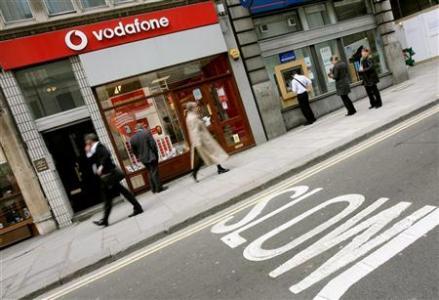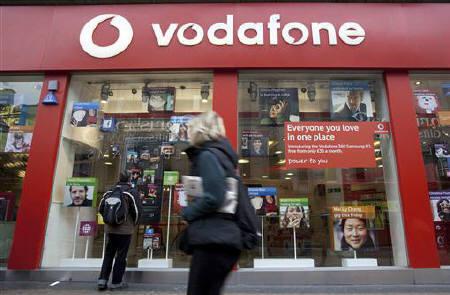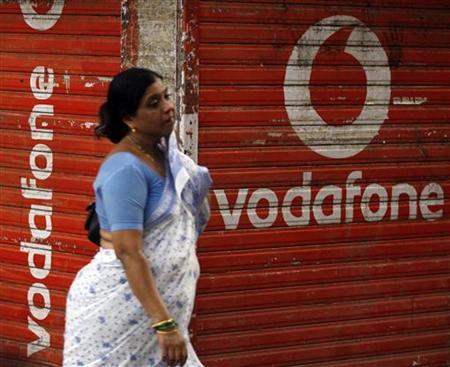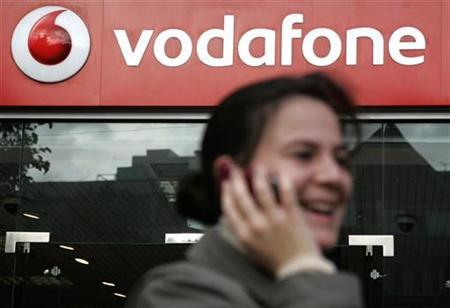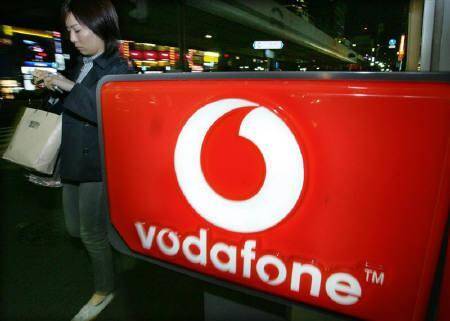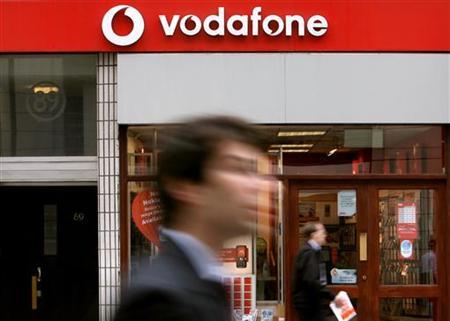 | « Back to article | Print this article |
Vodafone wins $2.2 billion tax case, blow for govt
In a major victory to Vodafone International Holdings, the Supreme Court on Friday set aside the Bombay High Court judgement asking the company to pay income tax of Rs 11,000 crore (Rs 110 billion), holding that tax authorities do not have jurisdiction on an overseas transaction.
A three-judge bench headed by Chief Justice S H Kapadia held that the IT department has "no jurisdiction" to levy tax on overseas transaction between companies incorporated outside India.
The decision is a big blow to the government.
Concerned over revenue implications of the judgement, Finance Minister Pranab Mukherjee held consultations with Law Minister Salman Khurshid and senior officials.
"Right now we only know that is a unanimous judgement that has gone against the revenue authorities... we have to examine. We obviously need revenue for government's important programmes and the other thing is the certainty in law – we have to examine both areas," Khurshid told reporters after the meeting.
The overall revenue implication of the ruling could be Rs 11,000 crore (Rs 110 billion) at a time when government is facing resource crunch because of slowdown.
Justice K S Radhakrishnan, who wrote a separate judgement, concurred with the findings of the Chief Justice and Justice Swatanter Kumar saying the companies (Vodafone and Hutchison) are incorporated outside and their transaction outside India has "no underlying nexus" with tax authority.
Click NEXT to read more...
Vodafone wins $2.2 billion tax case, blow for govt
Vodafone has no obligation under section 163 clause 1 (c) of Income Tax Act, Justice Radhakrishnan said.
The court asked the IT department to return Rs 2,500 crore (Rs 25 billion) deposited by Vodafone, in compliance of its interim order, within two months along with 4 per cent interest from the date of withdrawal of the money by the tax department.
It also asked Supreme Court registry to return within four weeks, the bank guarantee of Rs 8,500 crore (Rs 85 billion) given by the telecom major.
Through the $11.2 billion deal in May 2007, Vodafone acquired 67 per cent stake in the Hutchison-Essar Ltd from Hong Kong-based Hutchison Group through companies based in Netherlands and Cayman Island.
Click NEXT to read more...
Vodafone wins $2.2 billion tax case, blow for govt
Reacting to the judgement, Abhishek Manu Singhvi, one of the senior advocates who appeared in the case, said: "We are happy with the Supreme Court order. It has minutely gone through the case and come to a conclusion. Irrespective of the result it is a tremendous victory for Indian judicial System."
Earlier, Vodafone had moved the apex court challenging the Bombay High Court judgement of September 8, 2010, which had held that Indian IT department had jurisdiction over the deal.
Click NEXT to read more...
Vodafone wins $2.2 billion tax case, blow for govt
The IT Department maintained that since capital gains were made in India through the deal, Vodafone was liable to pay the tax and issued a show cause notice to it asking as to why it should not be treated as a representative assessee of the Vodafone International Holding.
Vodafone, however, challenged the show cause notice before the Bombay High Court saying it was share transfer carried outside India.
The appeal was rejected by the high court in December 2008, which was challenged by Vodafone before the apex court.
The Supreme Court had also dismissed Vodafone's appeal in January 2009 and directed IT Department to decide whether it had jurisdiction to tax the transaction.
Click NEXT to read more...
Vodafone wins $2.2 billion tax case, blow for govt
The Supreme Court, however, had observed that Vodafone would be at liberty to challenge the IT department's decision if it went against Vodafone and the question of law would also be open.
The IT Department passed an order in May 2010 and held that it had competent jurisdiction to treat Vodafone as an 'assessee in default' for failure to deduct tax at source.
This decision of the IT department was challenged by Vodafone before the Bombay High Court.
The High Court, by its September 8, 2010 judgement, dismissed Vodafone's petition and held that "the essence of the transaction was a change in the controlling interest in HEL which constituted a source of income in India".
Click NEXT to read more...
Vodafone wins $2.2 billion tax case, blow for govt
It was challenged by Vodafone before the Supreme Court on September 14, 2010.
The Supreme Court, by its interim order on September 27, 2010, refused to stay the High Court verdict and asked the IT department to compute the tax liability of Vodafone. On November 15, 2010 the apex court asked Vodafone to deposit Rs 2,500 crore (Rs 25 billion) and a bank guarantee of Rs 8,500 crore (Rs 85 billion) before the hearing of the case began.
It also said that if the case goes in favour of Vodafone then the government will have to return the amount to Vodafone along with interest. The Supreme Court had began hearing detailed arguments on in the case on August 3, 2011, and had reserved its judgement on October 19, 2011.
